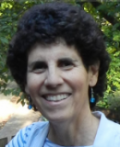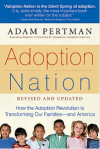When I began Adopt-a-tude a few years ago, it was an experiment in group blogging, one that did take off for awhile, possibly because of the sparks flying in the adoption community at the time. The sparks are still flying, of course, but the public discussion of adoption has shifted, too.
I wouldn't say that the cultural "moment" for adoption has passed. But it's no longer big news that many adoptees are determined to get access to their birth records—or that international adoption doesn't always have a happy ending. The increasingly nuanced depictions of adoption in movies and TV means that at least a few consciousnesses have been raised. May we all continue to raise awareness about adoption issues that matter to our families.
I'm currently Editor in Chief of Talking Writing, an online literary magazine, and I'm very open to publishing high-quality personal essays or fiction about adoption. Please check out TW's Submissions page for more information. Fran Cronin, AAT's blog manager, is also a columnist at the magazine and often touches on her experience as an adoptive mom.
So come follow us at Talking Writing, "like" us on TW's Facebook page, and sign up for a free TW subscription. And regardless, thanks for supporting Adopt-a-tude.
All our best wishes to you and your families!
Martha Nichols, founder of Adopt-a-tude
For those who missed it, here's the contents for TW's adoption spotlight last November...
Spotlight: Adoption and Parenting
 |
| Melissa Fay Greene |
Two personal takes on No Biking in the House Without a Helmet, Greene's 2011 memoir about her nine children
- "Whoa! I'm a Character in a Friend's Memoir?"
by Andrea Cornell Sarvady - Adoption, Light and Dark
TW Review by David Biddle

Interview: Adam Pertman
One of adoption's staunchest supporters talks about the latest challenges—and Steve Jobs
- "We Teach Our Kids by Being Open"
TW Author Interview with Adam Pertman
by Fran Cronin
Personal Essay
A mixed-race adoptee reflects on the need to create himself
- Always an Orphan
by David Biddle
 |
| Mei-Ling Hopgood |
Interview: Mei-Ling Hopgood
The author of the acclaimed memoir Lucky Girl has a new book on the way about cross-cultural parenting practices
- "American Parents Go a Little Nutty"
TW Author Interview with Mei-Ling Hopgood by William Gray
